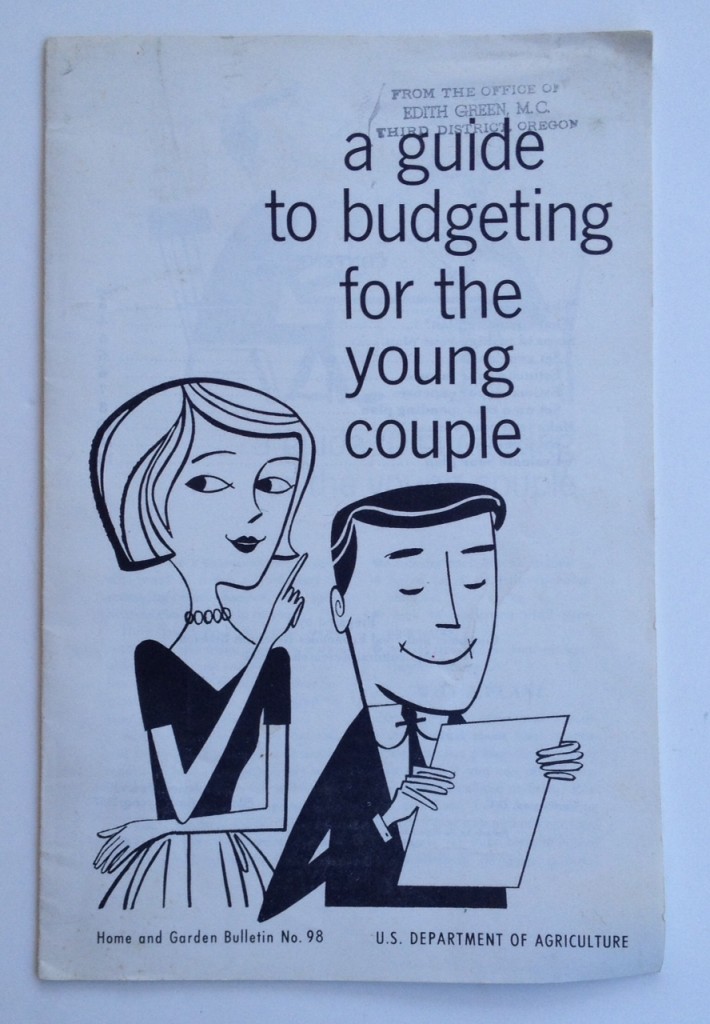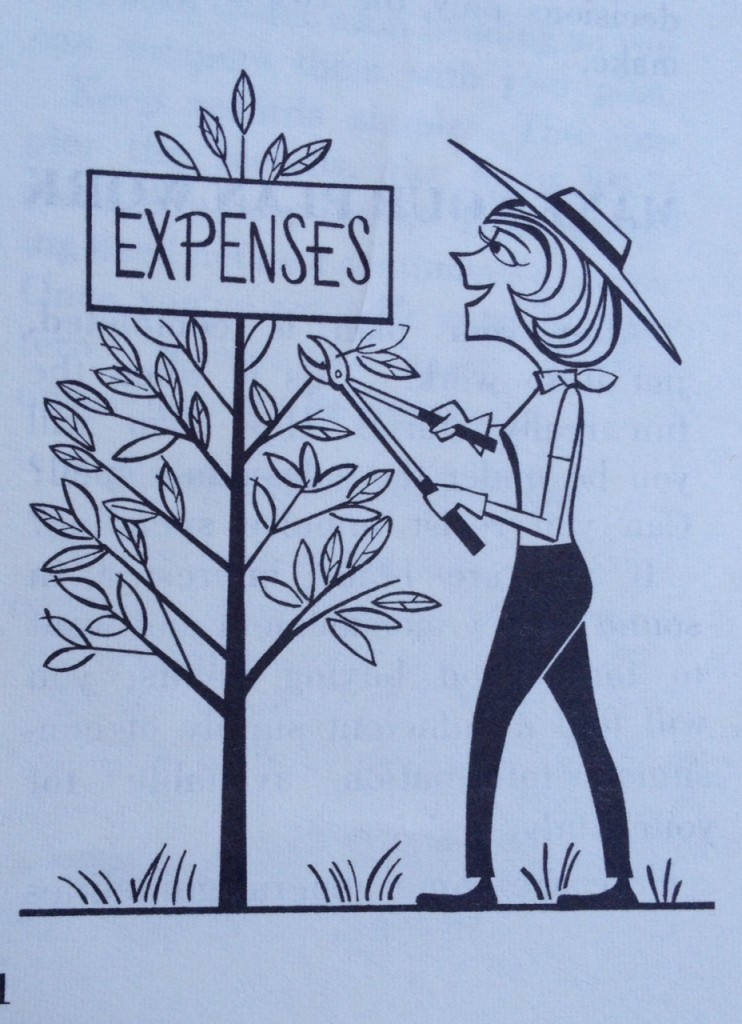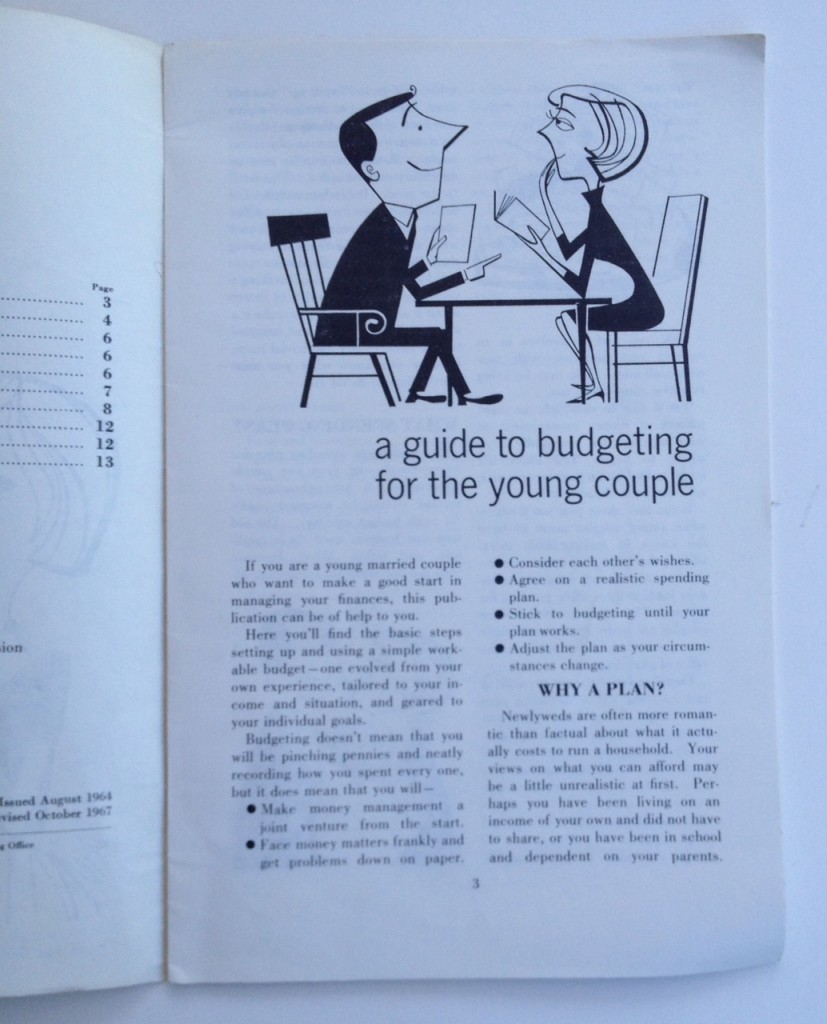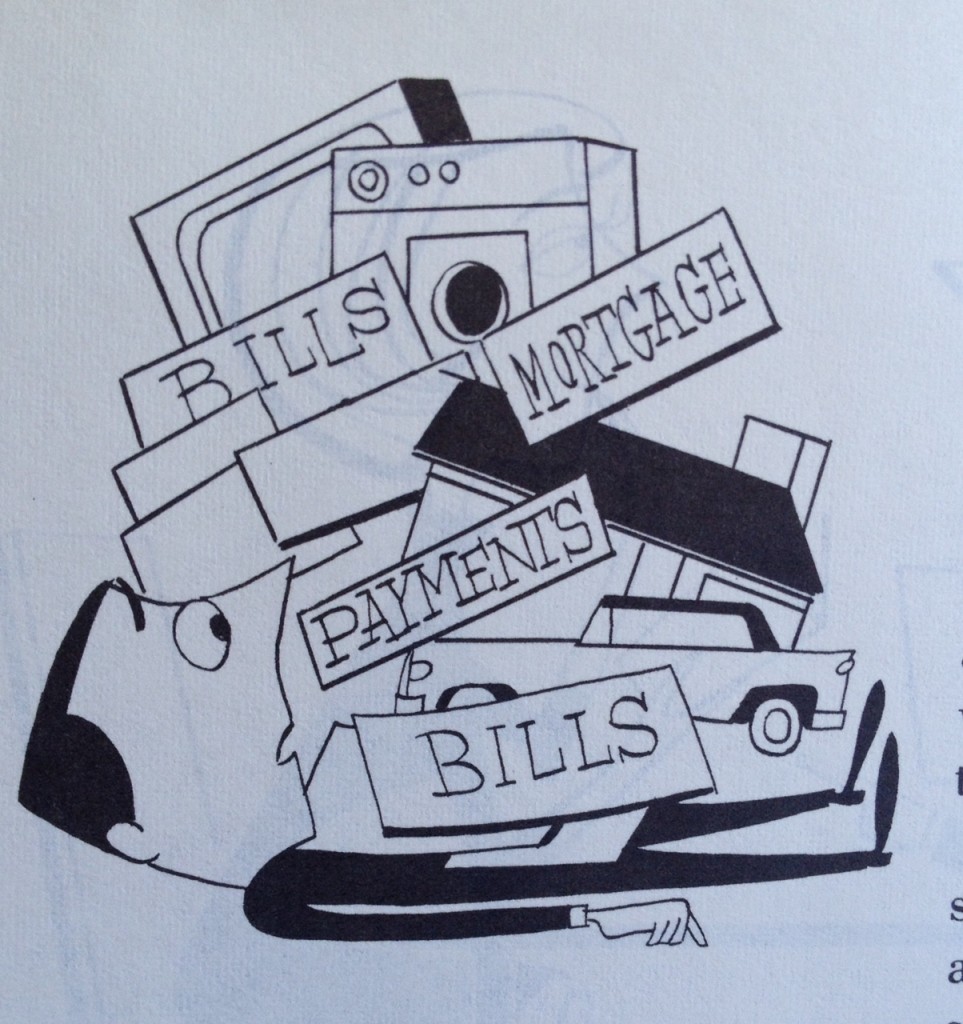
As someone who writes about personal finance, you’d think I’d be an expert budgeter. Effortlessly planning out each month’s income and then balancing it with my expenses while sipping a glass of chilled tap water.
Umm . . . not so much.
I’ve tried different methods through the years, from old school yellow pads to Dave Ramsey’s Every Dollar online program, but it never sticks. However, I don’t actually beat myself up too much about it as I never make impulse purchases. Really, never. I keep very close tabs on our bank accounts, and a tight eye our expenses, which I constantly work to lower. I was able to get myself to put together a budget in May, which I happily kept up with . . . . until I went to New York in July. (A budget conscious trip, which featured extremely low expenses.)
“It’ll be too difficult to keep up with while I’m on vacation,” said I to my deluded self. “I’ll just start it back up again in August. Oops . . . Did I say ‘August,’ I meant September.”
Sigh . . .
But I think I have found a wonderful budget inspiration, which is “A Guide to Budgeting For The Young Couple,” brought to you by the fine folks at the U.S. Department of Agriculture in 1954. Complete with the most amazing illustrations! (Bland stock photography has ruined our culture, but that’s a post for another day.)
Seriously, who doesn’t love this drawing?
Look at me, I’m cutting expenses! Get it, cutting expenses?! Plus, I’m wearing slacks!

The fourteen page pamphlet includes such advice as:
Before you actually make a spending plan, it is a good idea for the two of you to set some goals — some for right now (this month), some for later (6 months or a year), and some for the foreseeable future — perhaps 5 to 10 years from now.
Try to be down-to-earth and cooperative about your goals. Sure you both adore original paintings, but now is hardly the time to hang one on every wall, is it? If you find that your goals are moving in opposite directions — one of you dreaming about a sleek convertible and the other set on paying off a school debt — better bring these aspirations into the open.
Not exactly dated advice.
My husband and I may not fit into 1954’s idea of a “young couple,” but the booklet’s advice fits most every age group.
I’m going to sit down town tonight to update our September budget, because I am no quitter. And 61-year-old advice is just as good as brand new advice.
Are you a disciplined budgeter? If so, what advice do you have for me?
Please enjoy these additional illustrations!
Budget meeting:

Paying bills, but all the while having a lethal weapon at arms’ reach:

Literal crushing debt:

Sexy budgeting:

Katy Wolk-Stanley
“Use it up, wear it out, make it do or do without.”
Click HERE to follow The Non-Consumer Advocate on Twitter.
Click HERE to follow The Non-Consumer Advocate on Instagram.
Click HERE to join The Non-Consumer Advocate Facebook group.
Click HERE to follow The Non-Consumer Advocate on Pinterest.



{ 35 comments… read them below or add one }
Uh, it’s actually 61-year-old advice, not 51. (I’m not usually a nit-picker BUT the reason it stood out is that my birthday is next week and I’m turning 65 so I’m more conscious of dates.) I really love your blog, Katy.
Thanks, I guess math really isn’t a strength for me.
EveryDollar budgeting is interesting, but I find the transaction entry burdensome. What is your impression?
I love those illustrations! I also like the idea of having a budget. What can I say, I just like organizing things – money included. However, I have to admit that I have never been able to totally stick with a budget for any extended period of time. Somehow life gets in the way. Not that I am giving up, of course. Even if I don’t stick with my budget, it is still a useful money-management tool for me in a lot of ways. I have built up my savings over the years partly due to budgeting, but more due to the fact that we have a payroll savings plan through my work. If I don’t actually see the money in my paycheck, I am not tempted to spend it.
Ah, I love illustrations from the 50’s and 60’s!
This sage advice never falls out of style. Amazing how it’s perfectly applicable to today.
I’ve never budgeted. Like you, I keep a tight reign in our expenses and am an enthusiastic saver. To me a budget might make me spend more in one category than is necessary. Just too many brain cells needed for it!
Many people find it very helpful- whatever works!!
Hey, this advice is only a year older than I am (I turned 60 on 8/29). Glad to see you’re being kind to the elderly.
And re: the general concept, budgeting, shmudgeting. I’ve never tried and never felt the need. As you say, I figure that keeping an eagle eye on both the banking and the expenditures gets the job done.
I have had budgets my entire life, even in my late teens. I have always wondered, and still wonder, how someone knows when to let go of fun money (movies, new sneakers, eating out, books) if you don’t have a budget. I love organization.
I have read many finance books but don’t subscribe to any particular way of budgeting, other than to put pen to paper each month. I have a master budget that gets tweaked whenever I need to make some changes. But I do like Dave Ramsey’s saying that “every dollar has an assigned place to go.” That view of money has gotten my husband and I to a very nice retirement.
Congratulations of retirement. I am 49 and most of my financial efforts these days are with an eye to retirement.
Quicken works well for us. Quicken was a lifesaver – started about 12 years ago. Every dollar accounted for, whether in or out. Can do some sorting and downloading into excel which helps too to really analyze the data.
I use most of the standard budget line item categories in the software as I didn’t want to much breakdown of receipts to do. It helps me show my DH where we stand financially. Quicken has helped us curtail/quit prior bad habits and so much less spending is now the norm. Some people might not want the added step of entering into quicken. You can download data from your bank into quicken every month but I don’t know how accurate it ends up in categories.
Thank you Katy for your wonderful variety of posts and your consistency day in and day out of posting! When I see a new post – it is ‘goody-goody, what is today’s topic’.
Best to you. K
We do not budget but are not big spenders (and have a good income). When we were first married we used extra money to pay off student loan debt, then hit car loans, and finally our mortgage. We also have had retirement funding taken out of paychecks for decades. Maybe in retirement we will go to having a budget and I believe our almost twenty year old would benefit from having one (she spends at the rate she earns but is not spending more than she makes).
I love the brochure and the illustrations, thank you for sharing.
I am a long time budgeter. It used to be pen and paper for a long time, in conjunction with the (unsatisfactorily) tracked expenses in Yodlee, and then the fledging Mint.com. Then everything went topsy turvy when I got married because we have exceptionally different approaches to it. The strategy that now works best for us is this:
Every year + any time we have an income change, we sit down and look at our total gross monthly income. I take 25% off the top for savings. I take another 10% off for pre-tax and post-tax retirement vehicles. I then see what’s left, after subtracting that from our net income. What’s left is what we can spend for all our needs and wants. I try to make the spending column match the disposable income that’s left because between all our variables, the number of categories and ways to spend over the DI far outnumbered ways to increase income but over a few years, we’ve settled into a good rhythm where our savings are automatic and we live on the rest of the cash flow.
When the baby came along, I added another savings line item and automated that savings as well. It worked wonders in teaching us that we had X-baby expenses to spend at the end of the month without causing too much extra headache or accounting!
We don’t budget. We own our own business so our income can be very erratic. I do track almost all our personal expenses in Exel each month. I think I have about 25 rows so it’s pretty detailed. We rarely pay cash so there’s no disappearing $, you know, when you open your wallet and the $40 is gone. I an always working at lowering the expenses that are not fixed.
That’s exactly how I feel about cash. I can’t carry it. It evaporates. Magic.
I made my own Excel spreadsheet that I enter information into at the end of each month. Our secret is to use our one credit card for every expense so it’s all tracked online by categories and then I enter those totals into my Excel spreadsheet. The credit card has no annual fee and it earns us points that we can redeem for cash back. We pay the credit card off every month so we aren’t hit with interest fees. This system has worked well for us for the past 5 years or so. I’m not thrilled to be giving my business to a big bank/ credit card company but going all-cash wouldn’t work well for us as a family since my husband is FAR less organized than me and wouldn’t keep up with his expenditures.
We’ve started using cash for everything except bills. I pay bills online and then figure out how much of the rest of the cash goes towards our various categories. This works well for us and keeps us from only spending money on what we need.
I think you have to look at it at the margin. My husband and I are on the same page in terms of goals. I, like you, constantly seek out new ways to cut expenses while severely limiting unnecessary purchases. I think if we actively budgeted it would cut our spending by, what, $50? That’s not worth all the time, energy, and agrivation I would put into it.
I do budget, but don’t always stick to the budget. I have a spreadsheet that I use each week and cross items off when they are paid. Very old fashioned, but it works for me. I have years worth of spreadsheets on my computer and I had paper copies before computers! (but I threw those away a long time ago).
I only wish I could avoid the impulses!!! Or the grocery shopping and purchasing things not on the list.
It’s been SO long since we got married 53 years ago that I’m not sure how we came to the method, but I can tell you how I have done some things in the past and how I do them now. Today’s budget consists of one page in my notebook per month. I write down everything that needs to be paid this month (thus checking to make sure all bills are received also), add the exact amount when the bill comes, and check it off when I pay it. I add any additional checks I write, say for charities, extra expenses, etc, when I write them. Most things go on to my Mastercard bill and that is paid in full every month. I use it for gas, groceries, and have a lot of small bills—newspaper delivery, and such charged to it automatically. I take a certain amount of cash out per month for walking around money–usually $100 a week, but it varies according to need. We eat out about once a week on that (nothing fancy) and use the rest for runs to the hardware store, the farm stand, etc. If we run short, we can always get more out of the bank, but generally it lasts us for the month.
We live on one pension check, two social security checks, a savings account and our IRA/brokerage account. This is where the savings and investments came from: Every time I got a raise, only half of it went in my paycheck, and the other half went into the payroll savings. Over the years payroll savings was used for various short and long term goals. My husband’s 401K was funded as much as we could afford: he knew there was no pension for him, so we HAD to save it ourselves. His company matched to a certain point, so we made sure we put at least enough in to be matched. As our bills went down when the kids left home, we put more and more into 401K’s until his was maxed out, and then additional went into mine. No matching funds–government job. The pension is mine. After we eliminated any bills we had, we started paying down the mortgage until it was retired nine years early.
We inherited a little money over the years–but very little. My husband’s uncle, his parents (proceeds from a house sale) were very modest amounts in the 70’s. My Mom died a year and a half ago—a little more money from the sale of her house–house prices are up since the 70’s. The rest we earned ourselves. Now we are passing some of ours on to our only granddaughter by paying some of her expenses while she gets herself established–she’s 15 months past college graduation, working but not in her eventual field yet–we hope!
A little interest over a long period of time adds up! 401Ks, and a couple annuities when the interest rates were high, helped us grow our retirement nest egg nicely. At this point being frugal is such a habit that we don’t even think about it. “We can’t afford that” means “we don’t want to spend our money that way” I sale shop for almost everything. Coupons, store sales, and thrift shops are my way of doing it. I seldom buy a full price, and only in an emergency! Travel is our most expensive hobby–we take at least two vacations a year, sometimes three. One is a long 2-3 week trip, the others are long weekends usually. No secrets, just careful spending, careful savings, and attention to prices ALWAYS.
Such good advice for younger people! I’m a single person, who retired 5 years ago on a teacher’s pension and social security. Paying off my house was a huge part of my retirement plan. I also poured a lot into my state’s deferred compensation plan and Roth IRAs for later on. Because I was saving so much when I was working, my lifestyle hasn’t changed much, since I retired. I still live frugally and am content with what I have. But because of my frugal habits, I can still save for travel, maintenance on my house, etc.
budgeting has been very helpful for my husband and I. We have been able to pay off our student debt and are just about a year away from paying off our mortgage of our home. We only been married two years but it has been just incredibly helpful to us. I swear by mint.com for budgeting. It makes it very for you to set a budget and automatically categorizes where it can. It also tracks your debt so seeing your debt go down and your net worth go up is very empowering and motivating.
Love Mint.com!
I have natural frugal tendencies and don’t make impulse purchases either. Even though my salary has quadrupled since I first started working 12 years ago, I haven’t changed my spending habits too much. I still consider the cost of every little item I buy.
When I was about to buy my house, I did set out a detailed, categorised budget in excel. This was more to give me confidence that, yes, I could afford my mortgage and do the things I wanted. I’m a huge spreadsheet nerd (engineer here!) so have kept this spreadsheet up to date and tracking every dollar I spend for over the 6 years I’ve had my house. Who else has graphs of their home loan payments, or how their bills for gas, electricity have fluctuated over the years? Just me? Hmm, OK.
Whilst I do track spending very faithfully, I don’t actually have to reign in my spending as I naturally stick to each category’s limit. I can see how I’m travelling, monthly, quarterly and annually and any little overspend one month smooths out with underspends other months. in the end.
For me its a challenge that I enjoy. When the pay comes through I automatically pay all expenses…I pay fixed expenses fortnightly…elec, water, telephone, I part pay all these. Then I have a set amount for food. If there is any left over that is fun money. I generally don’t holiday…nor do I have an expensive car…so I guess that puts me ahead of many. I love reading and op-shopping so these are not expensive hobbies, enjoy lots of free community events. I watch every cent and try to make the most of them. I have let loose a little recently so I am going back to bare bones spending now…which I really enjoy and make it a challenge(also its better for the family for me to cook(I did struggle with not buying takeaway) but generally win….I am no longer purchasing clothes or items of furniture and I am redirecting money to lower expenses.
Budgeting – what some people call budgeting others may simply call a spending plan, maybe a not as negative connotation. Being retired we know exactly what our income will be each month. We have fixed expenses: car payment, mortgage, phone, water, electric (a budget plan where we pay the same each month), e-edition newspaper, internet. We have a lump sum we put aside every month to pay yearly expenses: car & house insurance, taxes, calculated, from the previous year, medical & dental expenses, HOA fee, gifts, greeting cards & stamps, clothing. Then we have food – that is a hard category to set aside an amount monthly. We know we spend about $400 a month and that includes food, household cleaning supplies, seeds & plants for food production. It’s a difficult amount set aside because altho there are many food items I buy every month or week, if there is a good deal I’ll buy as much as I think I can afford. So far this year we’ve averaged $387 per month with one month being $496 and one month being only $305. Now, if there is a major calamity, either manmade or natural like a hurricane, we can eat without a problem for a month.
Like you, Katy, we buy used when ever possible, shop for the best prices on everything, only buy what we need and try to reuse, recycle, repurpose, etc. We also are on a tear to eliminate whatever we don’t need, want, use by selling, gifting and donating. Any monies generated that way go into a special fund for unexpected expenses which for us would be something like a memorial gift for a deceased friend or family member. Yes, being older does have its down side for unexpected expenses.
I love it! And love the pictures as well, especially the last one.
Dh and I are not “budgeters”. We are trackers. We track every cent spent (and earned), and it’s entered in am Excel Spread sheet. That way, we know our living cost from one year to the next (been doing it for 7 years).
We are on the same page, money wise, never fought about this, so it helps a lot!
Have a great frugal day!
I’m like you. I just keep an eye on every penny spent since I have so little to spend. Right now I am on an austerity plan spending only on groceries. I have so many projects I can do with materials on hand that will keep me busy until the new year.
I love, love the pamphlet. I am a sucker for those old illustrations. The advice is still good, too.
Having said that, I used to have a budget and now I don’t. I keep a running idea in my head of what I can spend, and my savings is done automatically, so I always get that done first. In the old days, I kept a budget, and since my husband was paid weekly, I would note each week which ones we could pay that week and which long term ones we could set money aside for. It took a lot of effort, because we didn’t make enough money to get by, even though I was using a ton of frugal strategies. I did a lot of jiggling and moving and waiting till the last minute to pay some things so my bill payment check wouldn’t get to the bank before the paycheck did. It was very, very stressful, and it was so distasteful that I’ve found myself unable to sit down and make another budget since then. I have my bills memorized and know what we will have coming in, and operate accordingly. I might save more money with a budget, but I’ve tried several times to budget since those bad old days, and I can’t make myself do it. I know, I should get over it.
Ugh, the “B” word. I can’t tell you how many times I’ve written up budgets/spending plans (good ones, bad ones, fun ones, boring ones, flexible ones, stringent ones). They all sound good, but I have trouble actually sticking to them for any length of time.
What works better for me is a savings plan. This worked for paying for grad school and saving for down payment on first house. I have an excel spreadsheet for my savings account (actually credit union money market since it has higher rate) . Each column is a virtual “bucket” for savings goals: emergency fund, house down payment, new computer, summer trip, replace hot water heater, whatever (include cells for the running sum and goal total so you can watch your progress). When I finish paying my bills (every two weeks from my paycheck) and I know I need $X amount for groceries, eating out and entertainment for the next two weeks, everything above that remainder is transferred to my savings (one account) and I allocate it per my personal priorities (multiple buckets) in the excel doc.
What a savings plan doesn’t help me with is my problem areas–grocery and dining out. I’m considering moving to cash only for those ($x max every two weeks) to force myself into a spending limit.
Thanks to everyone for sharing their budget thoughts!
Going to cash WILL help. It’s what we do. Sounds like you are doing great! Keep it up!
I started using You Need A Budget software.
Pros
-it’s software so once you buy it, it’s yours (not a subscription)
-it can be used offline
-I like the layout
-the free trial period is 34 days, so enough time to see how it works for a full month and some change.
Con
-I haven’t quite figured out a good way to document transfers between accounts. There is several ways to do it but it mixes me up. It’s probably me!
Note: putting your transactions in from the bank is easy but not automatic.
I usually fall off the budgeting wagon in the summer, but managed to keep it up this year. Hope that helps. Keep at it.
I have been budgeting since junior high. I only had babysitting money of course but I planned out every dollar. Still do. the numbers are just bigger.
This post reminds me of one of my other favorite blogs, thefrugalwoods.com, they don’t do a budget either, as they are just uber frugal people naturally. I can see the benefit of a budget to control spending, but if you’re very frugal naturally, I think just tracking spending is sufficient.
I find budgeting doesn’t work so well for me. Of course, I do live under my means and am able to still save in retirement. What does work for me is to give myself a reality check from time to time. I write down every penny that I spend for a month to see where my funds are going. Most of the time, I find areas where I want to cut back a little or to try cutting out. I also set financial goals, such as saving for a special vacation. That motivates me to cut back in the areas, I’ve identified. Beyond the necessities, the key is to spend on things that are important. Important varies from person to person. It might be a vacation, a college fund or paying off a credit card.
That’s beyond adorable
I’m liking the Mint app and website so far (1.5 months). The website has a few more features. It hasn’t changed my spending much – we’re bare bones as it is, and need to increase our income instead. I have to stop myself from feeling proud – halfway through the month, we have very little spent compared to income. But we’ll get socked the last week of the month when almost everything comes due at once.
Now, if I can just get my husband to download the app!
{ 2 trackbacks }